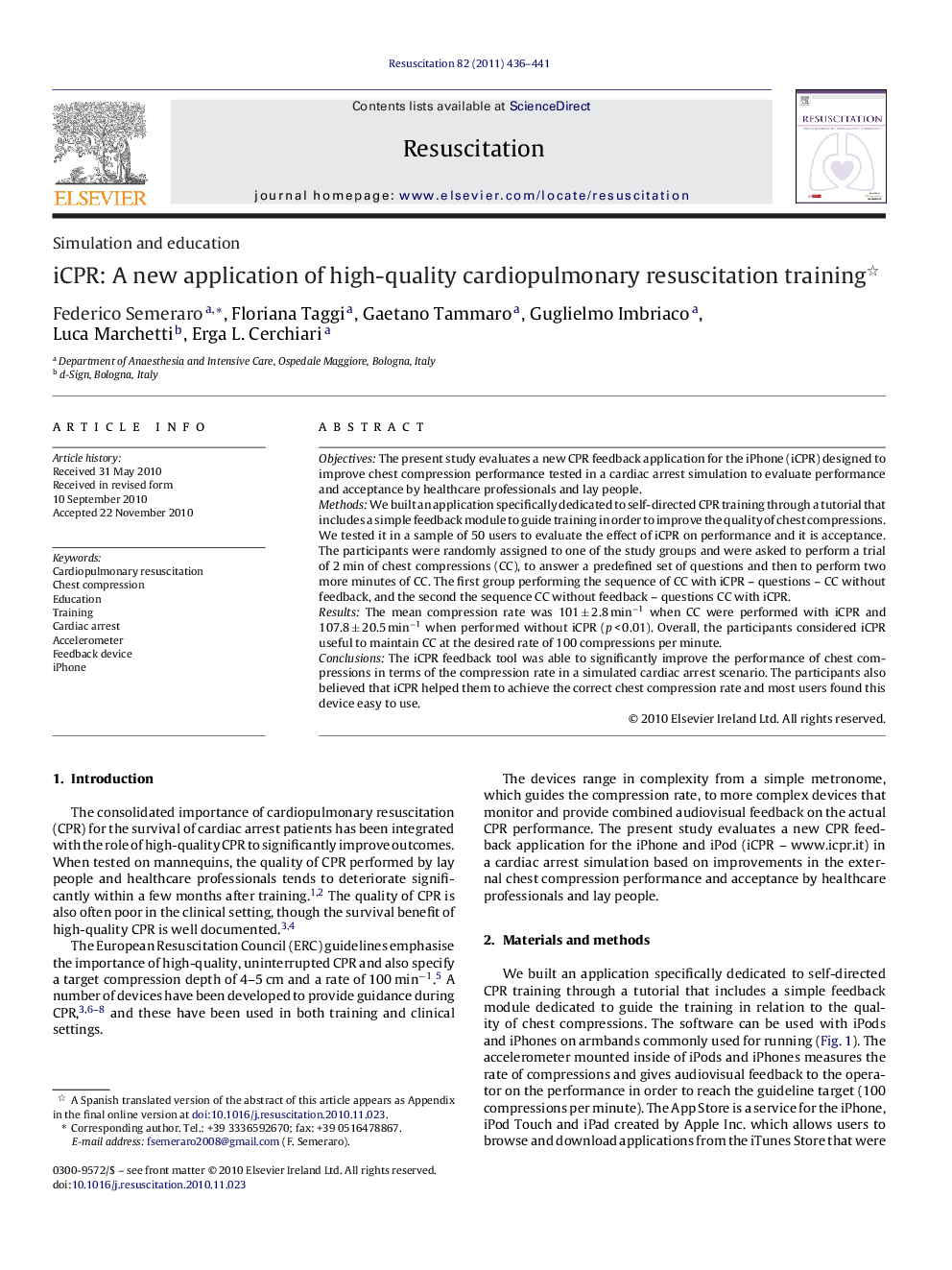| Article ID | Journal | Published Year | Pages | File Type |
|---|---|---|---|---|
| 3008878 | Resuscitation | 2011 | 6 Pages |
ObjectivesThe present study evaluates a new CPR feedback application for the iPhone (iCPR) designed to improve chest compression performance tested in a cardiac arrest simulation to evaluate performance and acceptance by healthcare professionals and lay people.MethodsWe built an application specifically dedicated to self-directed CPR training through a tutorial that includes a simple feedback module to guide training in order to improve the quality of chest compressions. We tested it in a sample of 50 users to evaluate the effect of iCPR on performance and it is acceptance. The participants were randomly assigned to one of the study groups and were asked to perform a trial of 2 min of chest compressions (CC), to answer a predefined set of questions and then to perform two more minutes of CC. The first group performing the sequence of CC with iCPR – questions – CC without feedback, and the second the sequence CC without feedback – questions CC with iCPR.ResultsThe mean compression rate was 101 ± 2.8 min−1 when CC were performed with iCPR and 107.8 ± 20.5 min−1 when performed without iCPR (p < 0.01). Overall, the participants considered iCPR useful to maintain CC at the desired rate of 100 compressions per minute.ConclusionsThe iCPR feedback tool was able to significantly improve the performance of chest compressions in terms of the compression rate in a simulated cardiac arrest scenario. The participants also believed that iCPR helped them to achieve the correct chest compression rate and most users found this device easy to use.
